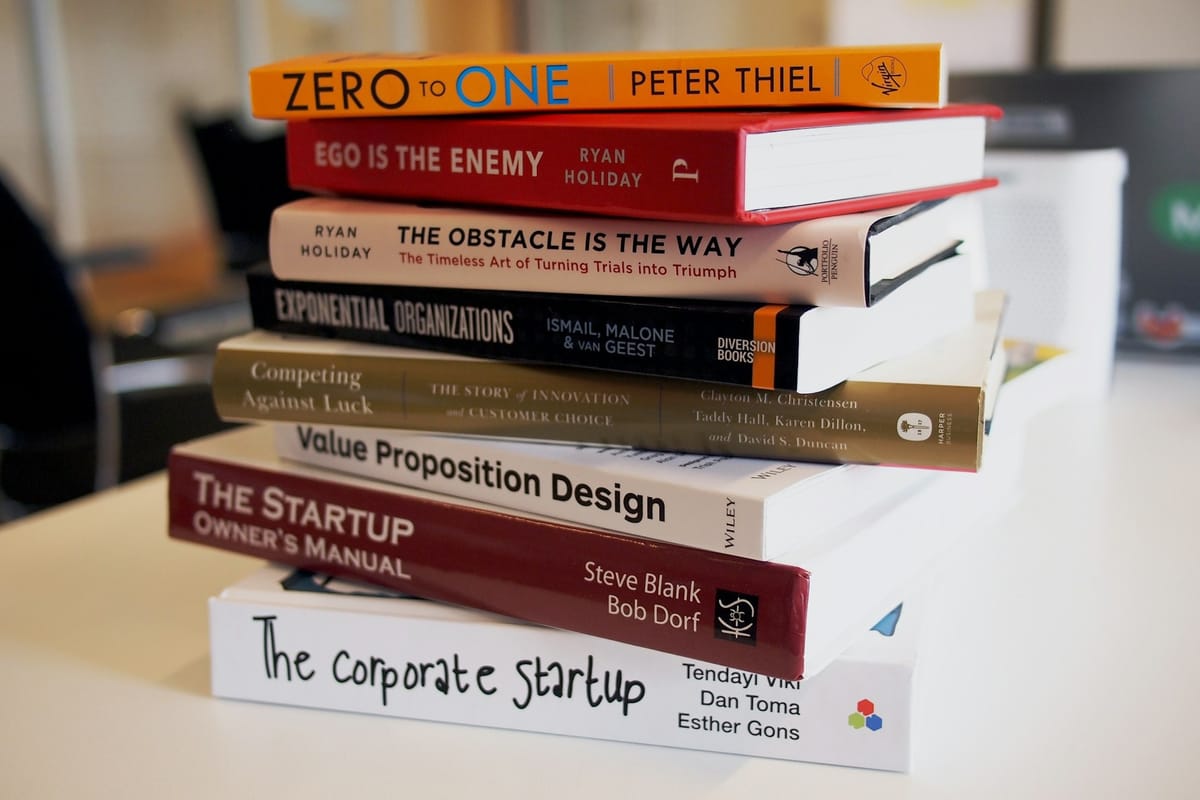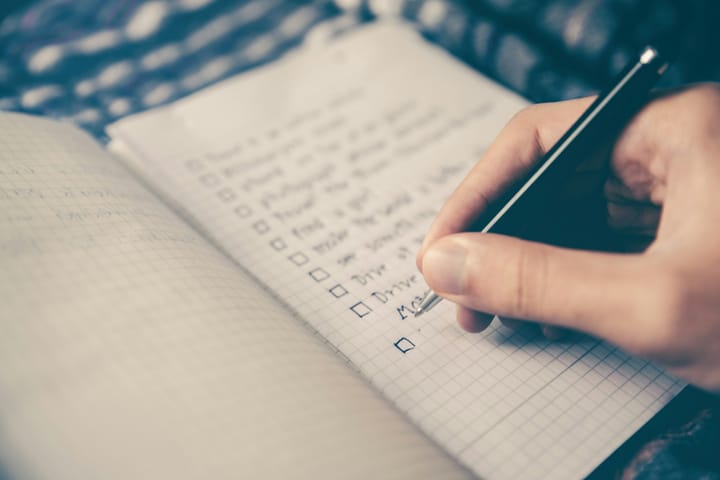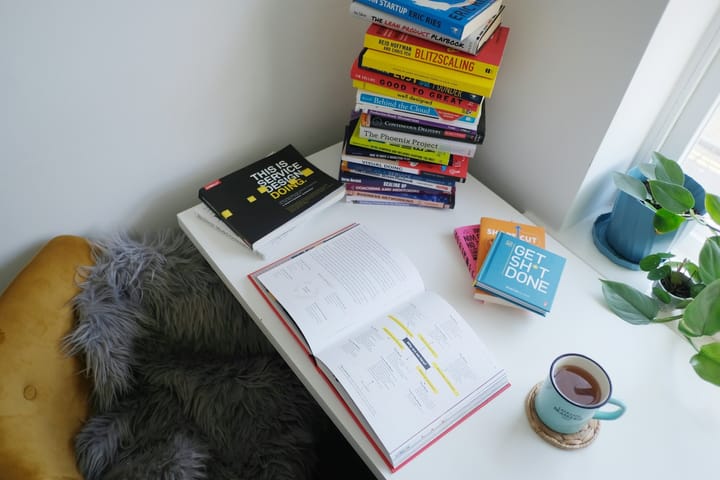Best Books to Boost Productivity That Actually Work
Discover the best books to boost productivity and transform your workflow. Read now and take charge of your time today.

I still remember the day I picked up my first productivity book. I was in my mid-twenties, juggling a new job, side projects, and a personal life that seemed to demand more attention than I had energy for. I felt like I was busy all day, but nothing significant moved forward. The to-do list was growing faster than I could tick things off.
One random night, while scrolling through YouTube, I came across a video recommending a book that, apparently, could change how we work. That book was "Deep Work" by Cal Newport.
It wasn't magic. It was better than that. It was a shift in mindset.
Over the years, I've read dozens of books that talk about getting things done, managing time, beating procrastination, and becoming a high-output machine without burning out. Some were overrated. Some were impractical. But a handful were truly transformative.
In this post, I want to walk you through the best books to boost productivity that have stood the test of time and relevance. These are not just books I read and forgot. These are books I applied and experienced results from. And I believe, if read the right way, they can do the same for you.
How Books Can Boost Productivity Beyond Just Motivation
Before we dive into specific titles, let’s talk about why books work. Because let’s face it, we don’t live in a shortage of information. YouTube videos, courses, podcasts, reels – there’s a flood of tips. Then why books? Because books let you sit with an idea. They force you to slow down. When you read a book like "Atomic Habits," you don’t just highlight lines and move on. You reflect. You implement.
Books bring depth. And depth creates lasting change.
The best books to boost productivity do more than hype you up. They give you frameworks, relatable stories, actionable steps, and a mental mirror. They make you pause and ask, "What am I doing wrong?" That’s why books are not just about information. They are about transformation.
Plus, a book doesn’t yell at you like a productivity guru in a reel. It doesn’t demand urgency. It respects your pace, while challenging your habits. That’s a rare balance. A well-written book has the power to become your silent coach. You carry it on flights, you revisit your notes, and you slowly level up without realizing.
That’s the reason I revisit some of the titles I’m about to mention every year. Not because I forgot them. But because every time I grow a little, the book gives me something new.
Atomic Habits: The Book That Redefined Small Wins
When people ask me, “If you had to recommend just one book to boost productivity, which one would it be?” I don’t blink. It’s always "Atomic Habits" by James Clear. And no, it’s not overrated. It’s overdelivered.
This book doesn’t teach you how to wake up at 5 AM. It doesn’t promise to make you a millionaire by doing three things before breakfast. It does something more powerful. It teaches you how to master the art of showing up.
James Clear breaks down behavior in a way that feels like he’s reading your diary. He shows how small habits, repeated daily, compound into big results. But he doesn’t stop there. He gives you a four-step model: cue, craving, response, reward. And then he shows how to use that model to either build or break a habit.
I tried this with my writing habit. I used to wait for motivation. But after reading the book, I created a simple system. I made my environment frictionless. I placed my journal on my desk every night. I started tiny. Just one paragraph. And slowly, it became non-negotiable.
What makes "Atomic Habits" one of the best books to boost productivity is not just the theory. It’s the clarity. You finish a chapter and you already know what to try next.
Deep Work: The Productivity Book for Focus-Starved Minds
I was guilty of multitasking. Slack, email, a podcast in the background, three tabs open, and pretending to write an article. But nothing moved. Until I read "Deep Work" by Cal Newport.
This book attacks the illusion of being busy. Newport makes a compelling argument that deep work – focused, undistracted work – is becoming rare and valuable. And those who master it will thrive.
He talks about the concept of shallow work, which is everything that feels urgent but isn’t important. Like replying to an email within 2 minutes or scrolling LinkedIn to find "inspiration." And then he talks about deep work, where time slows down, output multiplies, and you actually feel proud of what you did.
"Deep Work" forced me to set rules. I started blocking hours just for focused tasks. No notifications. No music. Just me and the work. It wasn’t easy. But the results were undeniable.
This book doesn’t just help you work more. It helps you work better. And in today’s distracted world, that’s the real edge.
The One Thing: Clarity as a Productivity Superpower
We often overcomplicate things. Multiple goals, endless priorities, a task list that scares you by 10 AM. But "The One Thing" by Gary Keller and Jay Papasan simplifies the chaos. It asks one simple question: What’s the ONE thing you can do, such that by doing it, everything else becomes easier or unnecessary?
The first time I read that, I paused. Because I had never looked at work that way. I was always chasing quantity. More content, more leads, more meetings. But this book showed me how clarity is power.
The authors go deep into focus. They talk about willpower as a finite resource. They explain how multitasking is a myth. And they walk you through how to build a life around purpose, not pressure.
I applied this in my own productivity system. Every morning, I write down just one goal for the day. Not five. Just one. And surprisingly, I end up achieving more by doing less.
"The One Thing" is not a book you read and forget. It’s a compass. And when life feels chaotic, it helps you find your true north again.
Essentialism: Saying No to Be More Productive
If you find yourself saying yes too often, this book is your medicine. "Essentialism" by Greg McKeown is not just a book. It’s a mindset shift. It challenges the idea that we must do everything. And instead, it teaches us to do only what truly matters.
We’ve been taught that productivity means doing more. McKeown flips that completely. He says it’s not about getting more things done. It’s about getting the right things done.
When I started applying essentialism in my life, I noticed something strange. I had more energy. I felt less drained. Why? Because I was no longer spreading myself too thin. I declined meetings that didn’t align. I dropped projects that didn’t excite me. And most importantly, I stopped feeling guilty about it.
The book uses real-life stories and practical strategies to help you identify your essentials. And once you do, you start living and working with intention.
In a world that glorifies hustle, "Essentialism" is a breath of fresh air. It reminds us that productivity is not about volume. It’s about value.
Eat That Frog: Winning Against Procrastination
There’s something old-school about Brian Tracy’s "Eat That Frog." The language, the examples, even the title. But don’t let that fool you. This book hits where it hurts. And that’s exactly why it works.
The core idea is simple. If the first thing you do in the morning is eat a live frog, you can go through the rest of the day knowing the worst is behind you. Your "frog" is your biggest, most important task. The one you are most likely to procrastinate on. Tracy says do it first. Before email. Before scrolling. Before coffee, even.
I tried it. I started writing my toughest content pieces early in the day. Before the world could distract me. And slowly, it became a habit. I found that my energy was higher, my focus was sharper, and my stress was lower.
"Eat That Frog" isn’t trying to be fancy. It’s direct, actionable, and brutally honest. If you struggle with procrastination, this one is your punch in the gut.
The 5 AM Club: Productivity Before Sunrise
Now this one is controversial. Some people love it. Some roll their eyes. But for me, Robin Sharma’s "The 5 AM Club" worked – not because I started waking up at 5 AM religiously, but because it made me rethink how I start my day.
The book is written in a story format, which might feel dramatic at times. But the principles are solid. The idea is simple: own your morning, elevate your life.
The 20/20/20 formula – 20 minutes of movement, 20 minutes of reflection, and 20 minutes of learning – helped me redesign my mornings. I didn’t follow it perfectly every day. But even doing parts of it helped me build a strong morning routine.
This book is not about guilt-tripping you into becoming a monk. It’s about helping you realize that the first hour of your day controls the direction of the rest.
Your Next Step Towards Better Productivity
Reading these books won’t change your life. But applying what you read will. If I had to summarize everything in one line, it would be this: Productivity is not about doing more. It’s about doing what matters, consistently.
Books have helped me change the way I think, plan, and execute. They’ve helped me say no. They’ve taught me systems. They’ve made me reflect on the difference between activity and impact.
The best books to boost productivity are not those that give you more things to do. They’re the ones that help you do less, better. That’s where the magic happens.
So, whether you’re a student, a creator, a leader, or just someone tired of feeling busy all the time, pick one book from this list. Don’t just read it. Live it. Because that’s where the shift begins.
And remember – progress is productivity. Everything else is noise.



Comments ()